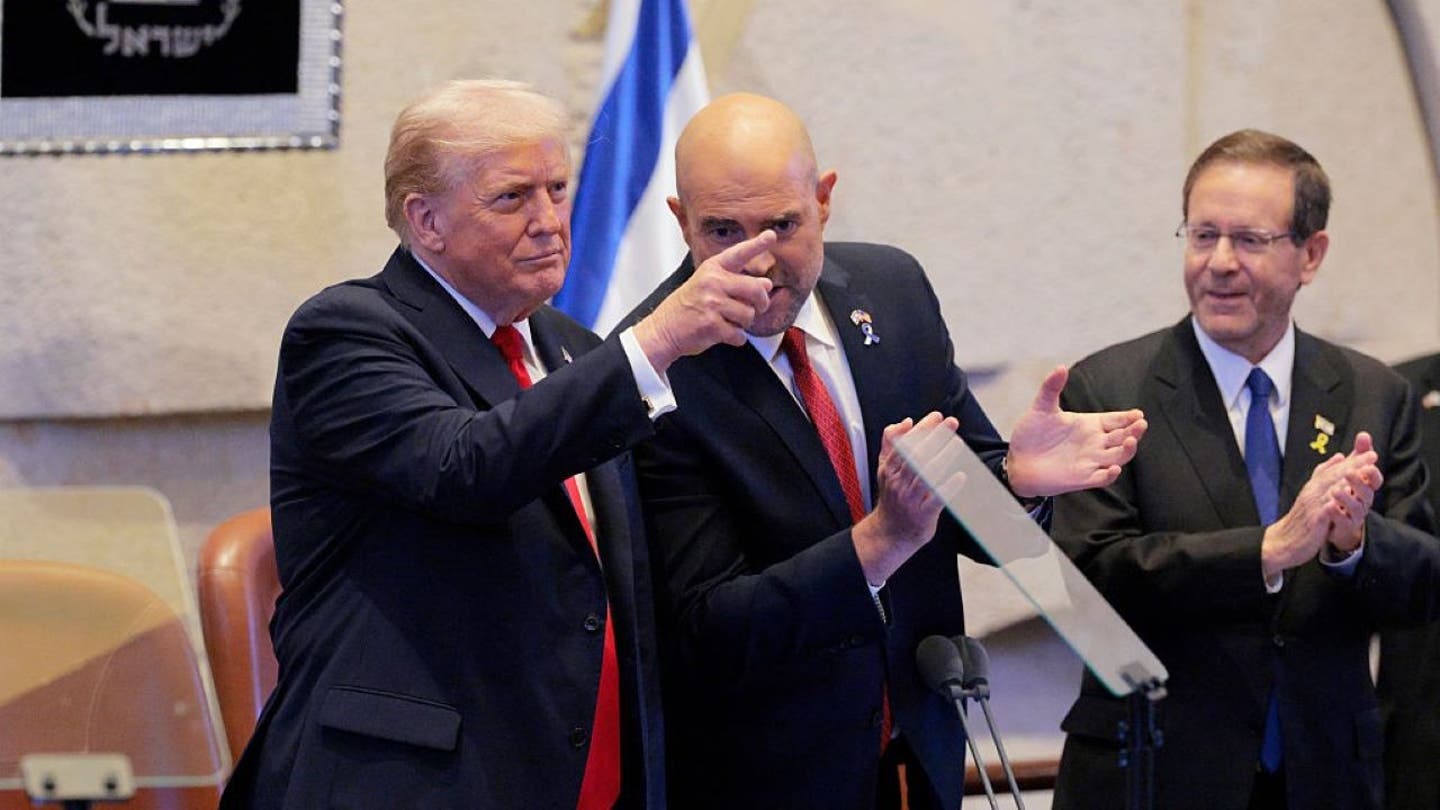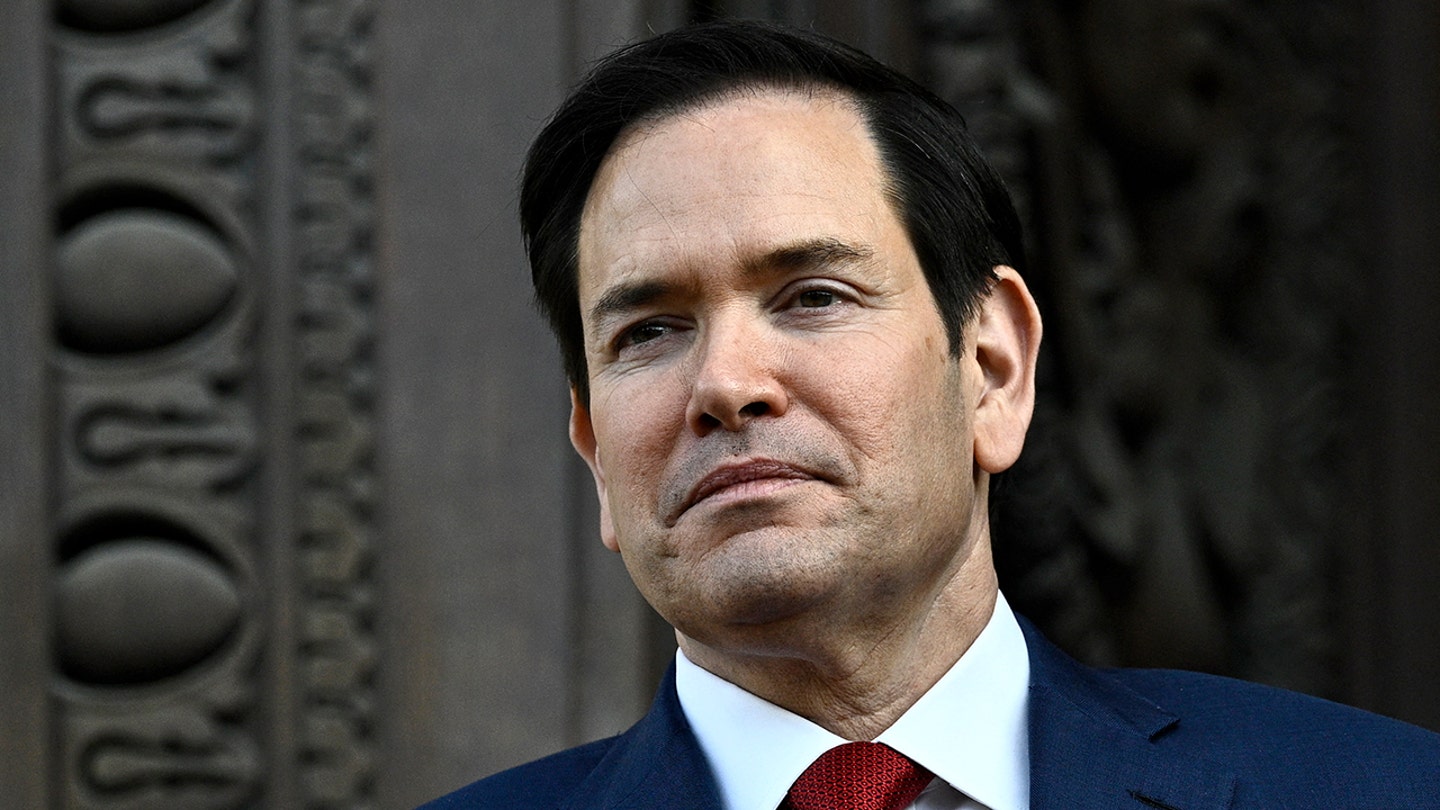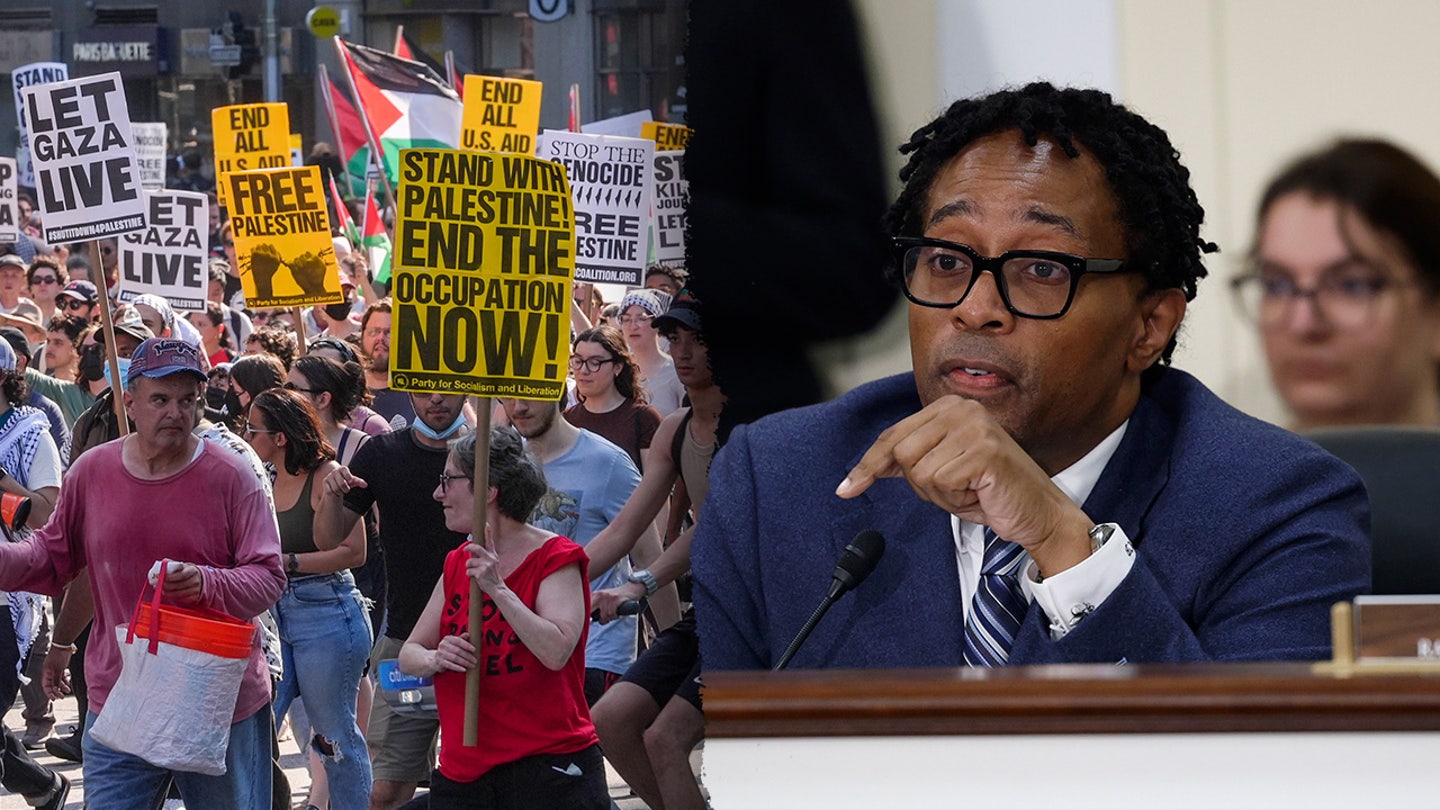
Van Jones distances himself from CNN while making pro-Israel statements at antisemitism conference
Entities mentioned:
- Van Jones: Righteousness, Influence, Duty
- CNN: Professional pride, Influence, Control
- Hamas: Power, Control, Revenge
- Israel: Self-preservation, Security, Unity
Article Assessment:
Credibility Score: 65/100
Bias Rating: 65/100 (Lean Right)
Sentiment Score: 55/100
Authoritarianism Risk: 30/100 (Generally Democratic)
Bias Analysis:
The article leans right, showing skepticism towards progressive views and CNN while presenting pro-Israel statements favorably. The framing of Van Jones' comments and the author's personal interjections contribute to the right-leaning bias.
Key metric: US-Israel Relations
Let me tell you something - this story is a GAME-CHANGER! Van Jones is stepping up to the plate for Team Israel in a major way, folks. He's calling out the opposition and laying down some serious defensive plays against antisemitism. Jones is showing a real championship mentality here, breaking away from his own team's playbook to make a clutch move in support of the underdog. This is fourth quarter stuff, people! He's putting it all on the line, going against his own sideline to stand up for what he sees as the right play. It's a bold strategy, Cotton - let's see if it pays off for him!

Kai Trump 'proud' of grandfather after president oversees historic Gaza ceasefire: 'He’s doing amazing things'
Entities mentioned:
- Donald Trump: Legacy, Power, Recognition
- Kai Trump: Pride, Loyalty, Recognition
- Benjamin Netanyahu: Gratitude, Loyalty, Professional pride
- Israel: Security, Self-preservation, Power
- Hamas: Power, Control, Self-preservation
Article Assessment:
Credibility Score: 65/100
Bias Rating: 75/100 (Lean Right)
Sentiment Score: 85/100
Authoritarianism Risk: 40/100 (Generally Democratic)
Bias Analysis:
The article leans right, presenting Trump and Israel in an overwhelmingly positive light. It relies heavily on praise from family and allies without presenting alternative viewpoints or critiques.
Key metric: US Global Diplomatic Influence
Let me tell you something - this story is HUGE! President Trump just pulled off a GAME-CHANGING play in the Middle East, folks! We're talking championship-level diplomacy here! The Donald stepped up to the plate and hit a grand slam with this Gaza ceasefire. He's showing MVP form, coaching both teams to a win-win solution. And let me tell you, his granddaughter Kai is cheering from the sidelines like it's the Super Bowl! Netanyahu is treating Trump like he's the GOAT of US-Israel relations - we're talking Jordan, we're talking Gretzky level respect here! This is the kind of fourth-quarter performance that cements a legacy, folks. Trump's not just playing the game, he's CHANGING it!

House Democrats call on Rubio to allow injured children from Gaza into US following visa halt
Entities mentioned:
- House Democrats: Moral outrage, Justice, Compassion
- Trump administration: Security, Control, Wariness
- Marco Rubio: Security, Duty, Wariness
- State Department: Security, Control, Duty
- Hamas: Power, Control, Influence
- Israeli government: Security, Control, Self-preservation
Article Assessment:
Credibility Score: 75/100
Bias Rating: 40/100 (Lean Left)
Sentiment Score: 35/100
Authoritarianism Risk: 45/100 (Mixed/Neutral)
Bias Analysis:
The article leans slightly left, giving more space to Democratic concerns and humanitarian arguments. While it includes Rubio's perspective, it frames the visa halt more critically and emphasizes the potential negative impact on children needing medical care.
Key metric: US Foreign Policy Effectiveness
As a social scientist, I analyze that this article highlights a conflict between humanitarian concerns and national security interests in US foreign policy. The decision to halt visas for Gaza residents, including children needing medical care, demonstrates a prioritization of security concerns over humanitarian aid. This policy shift could impact the US's global image and its ability to balance hard and soft power in international relations. The congressional pushback indicates internal disagreement on the appropriate balance between security and humanitarian considerations, which could lead to policy adjustments. The situation also underscores the complex interplay between domestic politics, international relations, and humanitarian issues in US foreign policy decision-making.

White House demands all Gaza hostages return home 'this week' amid stalled talks
Entities mentioned:
- Steve Witkoff: Duty, Determination, Influence
- Hamas: Power, Control, Self-preservation
- Israel: Security, Justice, Self-preservation
- Hostages and Missing Families Forum: Determination, Justice, Anxiety
- Benjamin Netanyahu: Power, Security, Self-preservation
- Donald Trump: Influence, Recognition, Ambition
Article Assessment:
Credibility Score: 75/100
Bias Rating: 55/100 (Center)
Sentiment Score: 35/100
Authoritarianism Risk: 40/100 (Generally Democratic)
Bias Analysis:
The article presents multiple viewpoints, including US, Israeli, and Hamas perspectives, as well as those of hostage families. While it leans slightly towards the US and Israeli positions, it also includes critical views of the Israeli government's approach.
Key metric: International Conflict Resolution Index
As a social scientist, I analyze that this article highlights the complex negotiations and tensions surrounding the hostage situation in Gaza. The involvement of multiple parties with diverging interests complicates the resolution process. The US, represented by Witkoff, is pushing for an immediate release of all hostages, while Hamas appears to be using the hostages as leverage. Israel's stance on complete destruction of Hamas creates an additional obstacle. The large-scale protests in Israel indicate growing public pressure on the government to prioritize hostage return over military objectives. This situation impacts the International Conflict Resolution Index by showcasing the challenges in balancing security concerns, humanitarian issues, and diplomatic negotiations in a long-standing conflict zone.

DNC panel fails to advance dueling resolutions on Israel’s war in Gaza
Entities mentioned:
- Democratic National Committee: Unity, Influence, Control
- Ken Martin: Unity, Control, Duty
- Progressives: Moral outrage, Justice, Influence
- Israel: Self-preservation, Security, Control
- Hamas: Power, Control, Revenge
- Allison Minnerly: Moral outrage, Justice, Influence
- Democratic Majority for Israel: Loyalty, Security, Influence
Article Assessment:
Credibility Score: 75/100
Bias Rating: 45/100 (Center)
Sentiment Score: 35/100
Authoritarianism Risk: 25/100 (Generally Democratic)
Bias Analysis:
The article presents multiple viewpoints and includes direct quotes from various stakeholders, indicating an attempt at balanced reporting. However, there's slightly more emphasis on the progressive perspective, which may suggest a slight lean towards the center-left.
Key metric: Democratic Party Unity
As a social scientist, I analyze that this article highlights significant internal divisions within the Democratic Party over the Israel-Gaza conflict. The failure to advance either resolution and the decision to refer the issue to a task force demonstrates the party's struggle to find a unified stance on a highly contentious foreign policy issue. This internal conflict could potentially impact voter enthusiasm and party cohesion, especially among younger and more progressive Democrats who are increasingly critical of Israel's actions in Gaza. The party leadership's attempt to balance various factions' interests while maintaining traditional support for Israel is proving challenging, reflecting broader shifts in public opinion and generational differences within the party. This situation may have implications for Democratic electoral performance, particularly in mobilizing the party's base.

US ally summons Trump ambassador over 'unacceptable' antisemitism allegations
Entities mentioned:
- Charles Kushner: Righteousness, Moral outrage, Loyalty
- France: Self-respect, Justice, Unity
- Emmanuel Macron: Duty, Justice, Security
- United States: Loyalty, Influence, Power
- Hamas: Power, Revenge, Control
- Israel: Security, Self-preservation, Justice
- Benjamin Netanyahu: Power, Security, Self-preservation
- Donald Trump: Loyalty, Power, Influence
Article Assessment:
Credibility Score: 75/100
Bias Rating: 55/100 (Center)
Sentiment Score: 30/100
Authoritarianism Risk: 35/100 (Generally Democratic)
Bias Analysis:
The article presents both US and French perspectives, quoting official statements from both sides. While it provides context about Kushner's background and Trump's support for Israel, it maintains a relatively balanced approach in reporting the diplomatic incident.
Key metric: US-France Diplomatic Relations
As a social scientist, I analyze that this incident represents a significant strain in US-France diplomatic relations. The summoning of an ambassador is a serious diplomatic action, indicating France's strong disapproval of Kushner's allegations. This conflict stems from differing perspectives on addressing antisemitism and the Israel-Palestine conflict. The US backing of Kushner's comments, despite France's objections, further complicates the situation. This disagreement could potentially impact cooperation on other international issues and weaken the transatlantic alliance. The incident also highlights the complex interplay between domestic politics, international relations, and personal connections in diplomacy, as evidenced by Kushner's familial ties to former President Trump.

Israel set to launch Gaza City offensive: High stakes, high costs ahead
Entities mentioned:
- Israel: Security, Revenge, Justice
- Hamas: Control, Power, Revenge
- IDF (Israel Defense Forces): Duty, Professional pride, Determination
- John Spencer: Expertise, Duty, Wariness
- Gadi Shamni: Expertise, Wariness, Duty
- Anonymous former Israeli security official: Expertise, Wariness, Duty
Article Assessment:
Credibility Score: 75/100
Bias Rating: 55/100 (Center)
Sentiment Score: 25/100
Authoritarianism Risk: 45/100 (Mixed/Neutral)
Bias Analysis:
The article presents multiple expert perspectives and includes detailed information about both Israeli and Hamas strategies. While it leans slightly towards the Israeli perspective, it also addresses potential risks and criticisms of the operation.
Key metric: Global Conflict Index
As a social scientist, I analyze that this article details Israel's preparation for a major offensive against Hamas in Gaza City, which will significantly impact the Global Conflict Index. The operation, dubbed 'Gideon's Chariots B', involves unprecedented military mobilization and presents complex challenges due to Gaza's dense urban environment and Hamas' extensive tunnel network. The analysis from military experts suggests a protracted, high-stakes conflict with potential for significant casualties on both sides and risks to civilian lives and hostages. This escalation could lead to increased regional instability, international diplomatic tensions, and a potential humanitarian crisis, all of which would negatively affect the Global Conflict Index. The operation's success or failure could have long-lasting implications for Middle Eastern geopolitics and global security dynamics.

House Democrat clashes with activists over Israel 'genocide' as pro-Palestinian protests derail town hall
Entities mentioned:
- Rep. Wesley Bell: Duty, Professional pride, Unity
- Pro-Palestinian activists: Moral outrage, Justice, Righteousness
- Hamas: Power, Control, Revenge
- Israel: Self-preservation, Security, Justice
Article Assessment:
Credibility Score: 75/100
Bias Rating: 55/100 (Center)
Sentiment Score: 30/100
Authoritarianism Risk: 25/100 (Generally Democratic)
Bias Analysis:
The article presents multiple viewpoints, including those of Rep. Bell, protesters, and supportive attendees. While it leans slightly towards Bell's perspective, it also includes the activists' arguments and attempts to provide context for both sides.
Key metric: Political Polarization
As a social scientist, I analyze that this event demonstrates increasing political polarization in the United States, particularly surrounding the Israel-Palestine conflict. The town hall's disruption by pro-Palestinian activists highlights the growing divide between moderate Democrats and more progressive elements within the party. Rep. Bell's struggle to maintain order and discuss local issues amidst protests over foreign policy reflects the challenges faced by elected officials in addressing both domestic and international concerns. The intense emotions and accusations of genocide indicate a deepening rift in public opinion on the Israel-Gaza conflict, which could potentially impact future policy decisions and electoral outcomes.

Israel eliminates Gaza terrorist who took part in October attack on kibbutz, took Yarden Bibas hostage
Entities mentioned:
- Israel Defense Forces (IDF): Justice, Security, Duty
- Shin Bet: Security, Duty, Justice
- Jihad Kamal Salem Najjar: Revenge, Control, Loyalty
- Yarden Bibas: Justice, Closure, Self-preservation
- Hamas: Control, Power, Revenge
Article Assessment:
Credibility Score: 75/100
Bias Rating: 65/100 (Lean Right)
Sentiment Score: 35/100
Authoritarianism Risk: 40/100 (Generally Democratic)
Bias Analysis:
The article leans slightly right, focusing primarily on Israeli actions and perspectives. While it includes factual information, the language used (e.g., 'heroes', 'terrorist') and emphasis on Israeli military success suggests a pro-Israel stance.
Key metric: National Security Index
As a social scientist, I analyze that this article highlights Israel's ongoing efforts to neutralize threats and seek justice for victims of the October 7 attack. The elimination of Jihad Kamal Salem Najjar, a terrorist involved in kidnapping Yarden Bibas, demonstrates Israel's commitment to pursuing those responsible for the attacks. This action likely contributes to a sense of closure for victims and potentially serves as a deterrent for future attacks. However, it also underscores the ongoing conflict and tensions in the region, which could have broader implications for regional stability and international relations. The emotional impact on victims like Bibas, who lost his family, is evident and reflects the human cost of the conflict beyond military actions.

US suspends visitor visas for people from Gaza
Entities mentioned:
- Marco Rubio: Security, Duty, Control
- State Department: Security, Control, Duty
- Hamas: Power, Control, Influence
- Trump administration: Security, Control, Power
- Laura Loomer: Moral outrage, Influence, Fear
- HEAL Palestine: Duty, Compassion, Justice
- Donald Trump: Power, Influence, Recognition
- Benjamin Netanyahu: Power, Control, Security
Article Assessment:
Credibility Score: 65/100
Bias Rating: 55/100 (Center)
Sentiment Score: 30/100
Authoritarianism Risk: 65/100 (Authoritarian Tendencies)
Bias Analysis:
The article presents multiple viewpoints, including government officials and humanitarian organizations. However, it gives more space to the administration's perspective, while critiques are less elaborated.
Key metric: Immigration and Border Control Effectiveness
As a social scientist, I analyze that this policy change reflects a significant shift in the US approach to humanitarian visas for Palestinians, particularly those from Gaza. The suspension of visitor visas, justified by alleged links to terrorist groups, indicates a prioritization of national security concerns over humanitarian considerations. This decision may have far-reaching implications for US-Palestine relations, humanitarian aid efforts, and the perception of the US in the international community. The involvement of far-right figures like Laura Loomer suggests potential political motivations beyond stated security concerns. The contrast between Trump's acknowledgment of the humanitarian crisis and this policy decision highlights the complex interplay between foreign policy, domestic politics, and humanitarian obligations. This move could potentially exacerbate the humanitarian situation in Gaza while altering the US's role in providing medical aid to conflict-affected populations.
- Read more about US suspends visitor visas for people from Gaza
- Log in to post comments